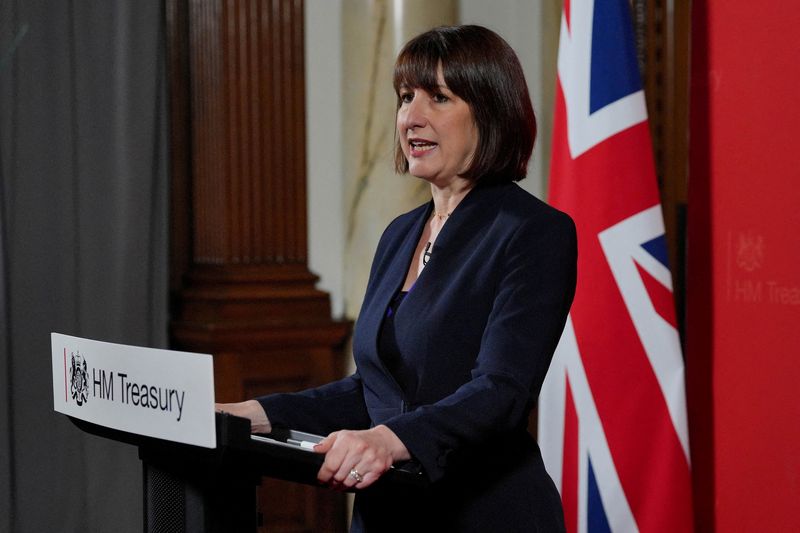LONDON (Reuters) - Britain's new finance minister Rachel Reeves said she will consider giving inflation-busting pay increases for almost 2 million government employees later this month to avoid crippling public sector strikes.
Two pay review bodies who advise the government have recommended a 5.5% wage rise for 460,000 teachers and 1.4 million staff in the state-run National Health Service, according to media reports.
Asked if the government would approve those pay rises, Reeves said she valued public service workers and warned there is a "cost" to long battles with unions that undermined the last government's efforts to improve public services.
"I really value public service workers, in our schools, in our hospitals, in our police as well," Reeves told the BBC. "There is a cost to not settling, a cost of further industrial action, and a cost in terms of the challenge we face recruiting."
The Labour Party won a commanding majority at a general election earlier this month promising a decade of "national renewal" after 14 years of Conservative-led governments.
In the run up to the election, Labour ruled out increases in the rates of income tax, corporation tax and value-added tax, leaving little room to increase spending.
The estimated cost of pay rises of 5.5% for teachers and certain National Health Service staff could be about 3 billion pounds ($3.88 billion), according to the Institute for Fiscal Studies.
Inflation in Britain is currently around 2%.
Reeves, Britain's first female finance minister, said the government will "make sure the sums add up" if public sector workers are given above inflation pay rises.
If the government wants to approve the pay raises it would need to raise taxes, increase borrowing or cut government spending in other areas, the IFS said.

Reeves said she would set out her plans for public sector pay deals and announce the date of next budget before the end of this month.
($1 = 0.7741 pounds)